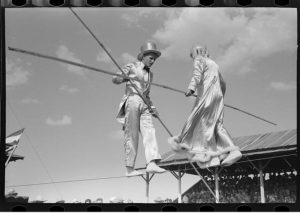 H.L. Mencken and his colleague George Jean Nathan became editors of The Smart Set magazine as it was nearing bankruptcy.
H.L. Mencken and his colleague George Jean Nathan became editors of The Smart Set magazine as it was nearing bankruptcy.
Mencken and Nathan not only rescued The Smart Set, but also created three new and popular magazines (Saucy Stories, Black Mask, and Parisienne). On top of these editorial successes Mencken was also a successful columnist and critic.
In Mencken’s autobiography he attributes his immense productivity to the following two work methods:
1. Out of Office
Mencken would only go to his New York office once a month. His partner, Nathan, would only go into the office “every morning, but remained, on an average day, for one hour.” They knew if they were to frequent their place of work they would be sidetracked by conversations with their publishers, but also by “authors hoping to sell their manuscripts, not on the merits therof, but by selling talk.” As such, they conducted most of their work by mail.
Mencken thought their habit original, but he writes, “It was not until long afterward that I discovered that a number of English magazine editors had practiced keeping clear of their offices before we thought of it.”
Further, Mencken was able to get prodigious amounts of work done while commuting from Baltimore to New York. “On my trips to and from New York I read more manuscripts than an average editor could get through in ten times the time in his office.”
2. End Debate
Mencken respected his partner’s taste, but they didn’t agree on everything leaving, one would imagine, plenty of room for discord. However, both men rarely fought over manuscripts.
Nathan sent all manuscripts to Mencken and, Mencken writes, “If I found one that I liked I marked it ‘Yes’ and sent it to Nathan. If he, too, liked it, he had it set up at once, and the author’s check went out at the end of the week. If, on the contrary, he dissented, the manuscript was returned to the author at once. We agreed that we should never waste any time on the discussion of manuscripts. The ‘No’ of either of us was final. This scheme worked perfectly for ten years. There was never any excuses for debates and quarrels.”
Mencken admits that the plan made them pass on a few notable authors, but the overall result was more valuable than momentary success.
Mencken writes, “This plan was so simple and so practicable that we often wondered that no other editors had ever thought of it. In all the other magazine offices that we ere acquainted with, save those operated as despotisms by solo editors, a vast amount of time and energy was wasted upon editorial debates.”
**
Mencken also said, “For every problem, there is a solution that is simple, neat, and wrong.” Yet, no matter what industry you are in, it is always best to avoid distracting conversations and idle debates if you want to get things done.



